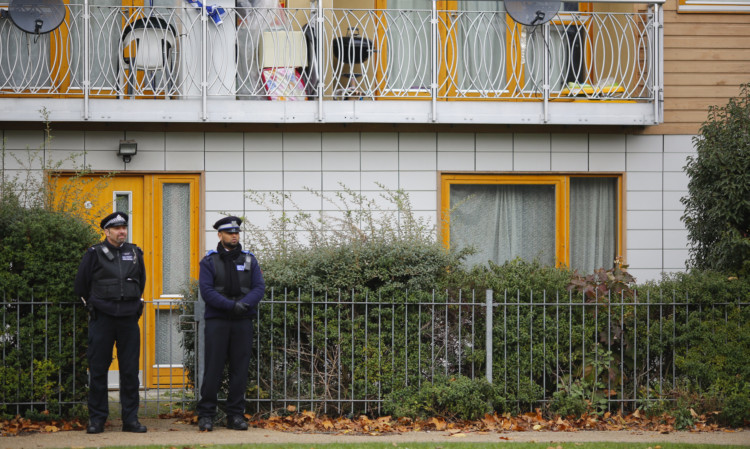The couple who allegedly held three women for more than 30 years were leaders of an extremist Maoist collective, it has been claimed.
A senior council source confirmed that Aravindan Balakrishnan and his wife Chanda were arrested last week by police amid allegations that they held three women for more than 30 years.
The alleged victims – a 30-year-old Briton, a 57-year-old Irishwoman and a 69-year-old Malaysian – are believed to have suffered years of “physical and mental abuse” at the hands of the pair.
House-to-house inquiries have been carried out in Peckford Place, Brixton, south London, where the three women were found, and police have confirmed that there are ongoing inquiries relating to a total of 13 addresses, all in the capital, linked to the couple.
The couple, aged 73 and 67, are believed to have been well-known to the police in the 1970s after setting up a communist squat, the Mao Zedong Memorial Centre, in Acre Lane, Brixton in 1976.
Balakrishnan, who was known as Comrade Bala, was a former member of the national executive committee of the Communist party of England (Marxist-Leninist) but documents show he was suspended from the party in 1974 for pursuing “conspiratorial and splittist activities”.
Documents also show how in 1978 police raided the Mao Zedong Memorial Centre, arresting 14 members of the organisation, including Aravindan Balakrishnan and wife Chanda, referred to as Comrade Chanda.
A source at Lambeth Council said the couple were believed to have been in the property for around 10 years after moving there from a council property, and concerns had previously been raised with police about the education of the youngest woman.
Scotland Yard would not comment on the claims, but previously said two of the victims met the male suspect through a “shared political ideology”, living with him at an address that was effectively called a “collective”.
Speaking earlier, Metropolitan Police commander Steve Rodhouse said: “We believe that two of the victims met the male suspect in London through a shared political ideology, and that they lived together at an address that you could effectively call a ‘collective’.
“The people involved, the nature of that collective and how it operated is all subject to our investigation and we are slowly and painstakingly piecing together more information. I will not give any further information about it.
“Somehow that collective came to an end and the women ended up continuing to live with the suspects.
“How this resulted in the women living in this way for over 30 years is what we are seeking to establish, but we believe emotional and physical abuse has been a feature of all the victims’ lives.”
The youngest of the three alleged victims is said to have written letters to neighbour Marius Feneck, 26, describing her life as being “like a fly trapped in a spider’s web”.
The woman wrote more than 500 letters to him in seven years, the Guardian said, after becoming infatuated with him.
One letter apparently told of the “unspeakable torment” she suffered behind locked doors and windows, and of how she was terrified that her captors – “these evil criminals… who dare to call themselves ‘my relatives”‘ – might do something to him.
The case came to light after the Irishwoman rang the Freedom Charity last month to say she had been held against her will.
Scotland Yard said that part of the agreement on October 25 when the women were removed from the address was that police would not take any action at that stage.
None of the women was reported missing after being rescued, police said, and all three are now in the care of a specialist non-governmental organisation.
Officers have recovered a birth certificate for the 30-year-old woman, who is believed to have lived her entire life in servitude, but no other official documents for her have been found.
The couple, who are of Indian and Tanzanian origin and came to the UK in the 1960s, have now been released on bail until a date in January.
A Lambeth Council spokeswoman said the case was “very complex” dating back decades and was a police-led operation, adding: “We are working very closely with police.”
